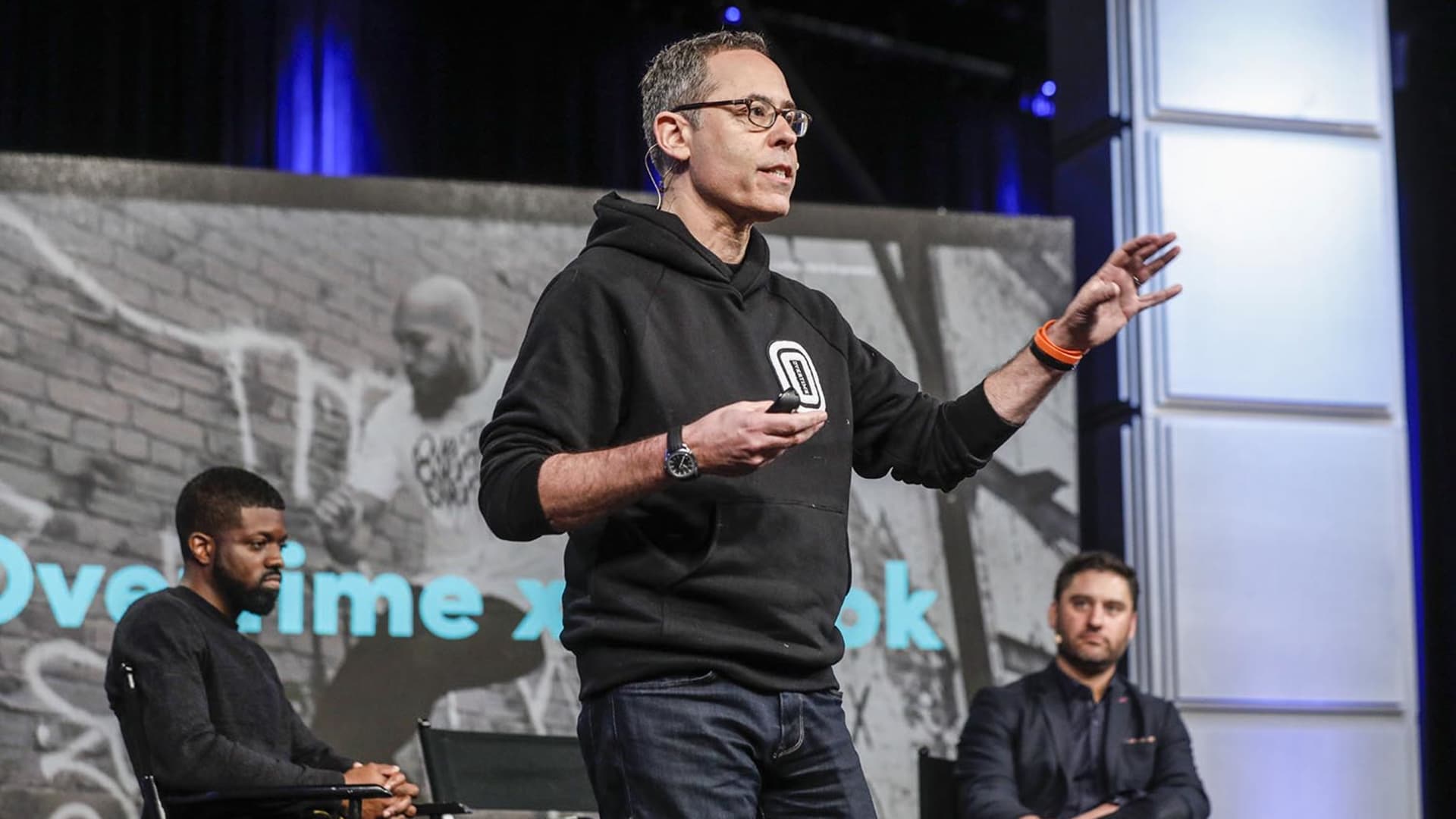
Dan Porter, founder and CEO of digital sports media company Overtime, can quickly point out a candidate who isn’t the right fit for his company.
He uses his go-to interview question, one that you’ve likely heard before: “Do you have any questions for me?” The interviewee’s answer paints a picture about what kind of employee they’d be, Porter told LinkedIn’s “This Is Working” podcast on Sept. 18.
“Bad employees, or bad interviewers, ask me about a dental plan or how I started Overtime when there’s, like,100 podcasts,” he said. “And good people are like, ‘Oh, I’m glad you asked that.’ And they have like 20 questions.”
Make no mistake, the interview process is typically the time to ask about benefits, says Suzy Welch, a career expert, NYU Stern School of Business professor and three-time New York Times best-selling author. “After all, people work for the love of it, for meaning, for growth — but also to pay the bills,” she says. “To ignore this reality, especially in 2025, is ridiculous.”
“But I agree, these are not matters to discuss with the CEO, and frankly, not matters to raise until you have an offer in hand. … Frankly, they may not even know about the dental benefits in any detail, and if you ask, they could very possibly think, ‘Well, I know why this person wants to work here,'” Welch adds. “With the CEO, use your time to talk about the markets, competitors and any ideas you have about the many ways you will make the company better, smarter and stronger.”
Candidates can also ask about the company culture and how employees at the organization collaborate, says Welch. Just be sure to ask specific, particular questions, not those with “fluffy, jargon-addled terms.”
Something like “How do the managers here support work-life balance?” for example, sounds good on the surface, but doesn’t really get down to what day-to-day life at the organization looks like and can prompt a broad answer. Using Welch’s advice, a question like, “What kind of person should not work at this company?” is much more pointed, eliminates buzzwords and prompts less rehearsed answers.
“Use your time wisely in the interview,” says Welch. “You’re not wrong to care about benefits, just do it with the right people at the right time.”
As for what green-flag qualities Porter looks for when hiring someone, he values character and intelligence over a lengthy resume, he says.
“I prioritize personality and intelligence, but not academic intelligence, intelligence to think about the world,” said Porter, 59, using his experience running social game company, OMGPOP — which was acquired by Zynga for $180 million in 2012 — as an example. “When I ran a gaming company, I used to only ask one question: What’s your favorite game and why?”
When a person could give a detailed answer about what makes that specific game better than all the others, “I knew they would be great to work at a game company,” he added.
Want to be your own boss? Sign up for Smarter by CNBC Make It’s new online course, How To Start A Business: For First-Time Founders. Find step-by-step guidance for launching your first business, from testing your idea to growing your revenue. Sign up today with coupon code EARLYBIRD for an introductory discount of 30% off the regular course price of $127 (plus tax). Offer valid September 16 through September 30, 2025.



